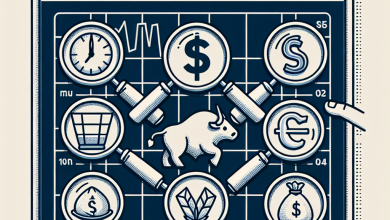
Rotation Trade Slowing Despite Volatility, According to Barclays
Investing Outlook: Barclays Analyzes Recent Market Dynamics
Recent analysis from Barclays indicates that the current rotation trade in the market is losing steam, even amidst considerable volatility.
After several months characterized by sharp shifts among various market factors, largely influenced by macroeconomic developments such as the unwinding of the Yen carry trade and broad risk reduction, strategists have observed that most factor returns have stabilized at levels reminiscent of those from two months ago.
Barclays attributes this stabilization to critical macroeconomic events, particularly the Federal Reserve’s recent 50 basis point interest rate cut, coordinated stimulus efforts in China, and robust labor market data in the United States.
While some incoming indicators, like Purchasing Managers’ Index (PMI) figures, show mixed results, these positive developments have fostered a sense of market stability. Strategists predict a global cutting cycle that could prolong the economic expansion into 2025, despite lingering uncertainty surrounding the upcoming US elections.
The strategists noted, “We believe that the global cutting cycle will stimulate and extend the economic cycle, leading to a soft landing in 2025.” They have chosen to hold off on increasing cyclical exposure until the electoral uncertainty in the US diminishes and additional data becomes available for interpretation.
Historically, cycles following US elections combined with bear steepening trends tend to favor cyclical and undervalued styles such as Value and Small Caps, while defensive strategies like Low Volatility often struggle.
In light of this analysis, Barclays has revised its factor recommendations, lifting its Negative outlook on Value and adopting a Negative stance on Low Volatility.
The report highlights that Value has shown recent signs of improvement, fueled by encouraging data and stabilizing yields, making it a more appealing option as US election uncertainties ease.
Conversely, Low Volatility is anticipated to encounter challenges in the near term, given that bear steepening and the resolution of electoral uncertainty typically do not support defensive factors.
Ultimately, Barclays’ adjustments reflect a cautious shift toward cyclical factors, maintaining a Positive outlook on Growth and Quality-Yield while adopting a more conservative stance on defensive strategies.
 GOOGL
GOOGL  META
META 


